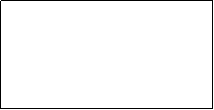8i. Using
the power series method, find complete solutions for the following differential
equation
![]()
Solution:
![]() is a singular point of
given ODE (the only one). It is
desired to find a power series solution about this point because in this case
solution will be convergent for any
is a singular point of
given ODE (the only one). It is
desired to find a power series solution about this point because in this case
solution will be convergent for any ![]() .
.
Check if the
point ![]() is a regular
singular point.
is a regular
singular point.
Rewrtite equation in normal form
![]()
![]()
Then
![]() is analytic with
is analytic with ![]()
![]() is analytic with
is analytic with ![]()
Construct
indicial equation:
![]()
![]()
![]()
![]()
Let
![]() and
and ![]() , then
, then ![]() (positive integer)
(positive integer)
Consider
case 2 of the Frobenius Theorem.
First
solution can be found in the form:
![]()
Differentiate
it and substitute into equation
![]()
![]()
![]()
![]()
![]()
![]() divide
by
divide
by ![]()
![]()
![]()
![]()
![]()
![]()
![]()
![]()
![]()
![]()
![]()
![]()
![]()
Use
Identity Theorem (Theorem 2.6 p.160) – all coefficients in expansion are equal
to zero:
![]()
![]()
![]() recurrence formula
for
recurrence formula
for ![]()
Evaluate
coefficients:
![]()
![]()
![]()
![]()
![]()
![]()
![]()
![]()
…
![]()
![]()
![]()
![]()
Write
general solution:
![]()
![]()
![]()
![]()
![]()
![]() (see Theorem 2.5 4.
p.159)
(see Theorem 2.5 4.
p.159)
![]()
![]()
Second
solution – Reduction formula:

![]()
![]()
Therefore,
absorbing coefficients by the arbitrary constants ![]() ,
,
The
general solution can be written as
(see
Section 5.6 Bessel Functions of half
orders):

![]()
![]()
![]()
The graph of solution curves:
2.4-5 #8i
>
restart;
General Solution:
>
f:=c1/2*cos(x)/sqrt(x)+c2/2*sin(x)/sqrt(x);
![]()
Generate
family of solution curves:
>
f:={seq(seq(f,c1=-3..3),c2=-3..3)}:
>
plot(f,x=0..4,y=-5..5,color=black);

ALTERNATIVE Solution:
Look
for solution with the second root of indicial equation (if we anticipate the
presence of ![]() ):
):
![]()
Differentiate
it and substitute into equation
![]()
![]()
![]()
![]()
![]()
![]() divide
by
divide
by ![]()
![]()
![]()
![]()
![]()
![]()
![]()
![]()
![]()
![]()
![]()
Use
Identity Theorem (Theorem 2.6 p.160) – all coefficients in expansion are equal
to zero:
![]()
![]()
![]() recurrence formula
for
recurrence formula
for ![]()
Evaluate
coefficients:
![]()
![]()
![]()
![]()
![]()
![]()
![]()
![]()
…
![]()
![]()
![]()
![]()
Write
general solution:
![]()
![]()
![]()
![]()
![]()
![]()
![]()